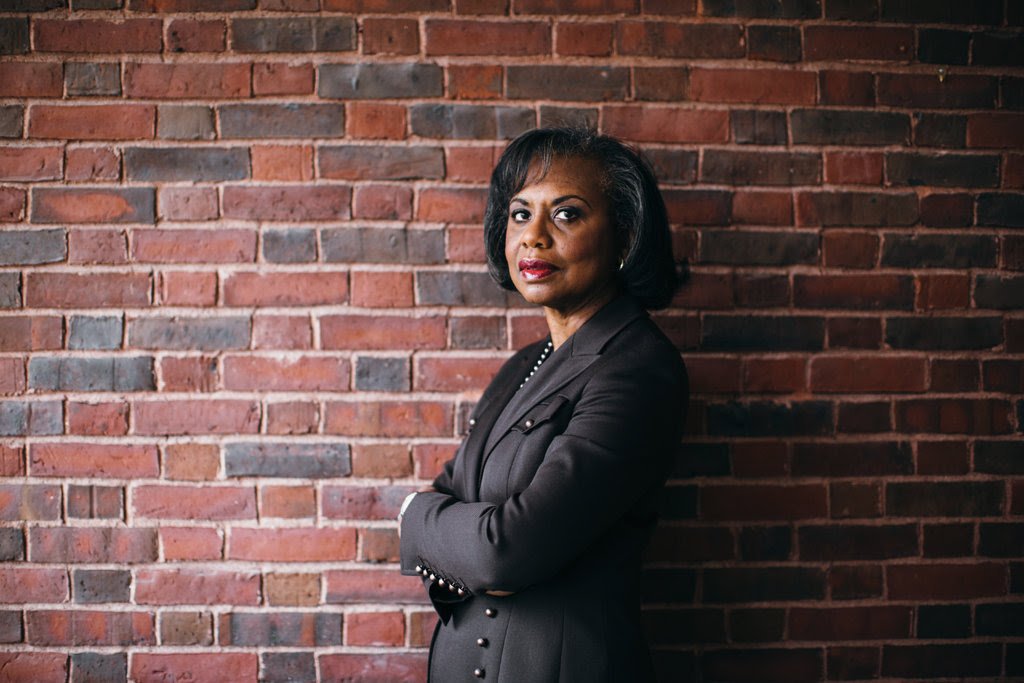WASHINGTON — Joe Biden knew Anita Hill was going to be an issue for him. So a few weeks ago, as he prepared for his presidential announcement, he reached out to her through an intermediary and arranged a telephone call, hoping to assuage her.
It did not go how he had hoped.
On Thursday, the first day of his presidential campaign, the Biden camp disclosed the call, saying the former vice president had shared with Ms. Hill “his regret for what she endured” 28 years ago, when, as the chairman of the Senate Judiciary Committee, he presided over the confirmation hearings in which she accused Clarence Thomas, President George Bush’s nominee to the Supreme Court, of sexual harassment.
But Ms. Hill says the call from Mr. Biden left her feeling deeply unsatisfied.
In a lengthy telephone interview on Wednesday, she declined to characterize Mr. Biden’s words to her as an apology and said she was not convinced that he has taken full responsibility for his conduct at the hearings — or for the harm he caused other victims of sexual harassment and gender violence.
She said she views Mr. Biden as having “set the stage” for last year’s confirmation of Justice Brett M. Kavanaugh, who, like Justice Thomas, was elevated to the court despite accusations against him that he had acted inappropriately toward women. And, she added, she was troubled by the recent accounts of women who say Mr. Biden touched them in ways that made them feel uncomfortable.
“The focus on apology, to me, is one thing”, Ms. Hill said. “But he needs to give an apology to the other women and to the American public because we know now how deeply disappointed Americans around the country were about what they saw. And not just women. There are women and men now who have just really lost confidence in our government to respond to the problem of gender violence”.
The Biden campaign said Thursday that it would have no comment beyond its initial statement on Ms. Hill’s reaction to the call from Mr. Biden. “They had a private discussion where he shared with her directly his regret for what she endured and his admiration for everything she has done to change the culture around sexual harassment in this country”, said the deputy campaign manager, Kate Bedingfield.
Mr. Biden’s disclosure, and Ms. Hill’s interview, underscore the former vice president’s potential vulnerability from an event that is nearly three decades old, but that has new resonance in the #MeToo era and the aftermath of last year’s Kavanaugh hearings. That it erupted so quickly, with his campaign only hours old, suggests that Mr. Biden’s treatment of Ms. Hill will echo throughout his campaign unless he can find a way to convincingly put it to rest.
In recent interviews, Ms. Hill and others involved in the confirmation fight portrayed Mr. Biden’s handling of the hearing as at best inept and at worst deeply insensitive. They fault his refusal to seriously investigate her accusations and take public testimony from other potential witnesses who said the future justice had acted inappropriately with them. Justice Thomas has denied any inappropriate behavior.
One of those potential witnesses, Sukari Hardnett, a lawyer in Silver Spring, Md., said in an interview that she decided to come forward while watching the hearing when she “saw what they were doing to Anita Hill and how they were literally trying to trash her”. Ms. Hardnett wrote a letter detailing her own experiences and submitted it to the committee through the dean of her law school, expecting to be called to testify. But she said she was not.
Another woman who sought to testify, Angela Wright, called Mr. Biden “pretty much useless” last year in an interview.
Ms. Wright, Ms. Hartnett and one other woman, Rose Jourdain, who died in 2010, were ready to back up Ms. Hill’s account before the committee, but Mr. Biden ended the hearings before they were heard from in public. Over the years, Mr. Biden has suggested they either backed out or were reluctant.

COMMENTS